How to Get a Concealed Carry Permit: The Complete 2026 Guide for All 50 States
Whether you are a first-time gun owner or a seasoned shooter looking to carry legally across state lines, understanding the concealed carry permit process is essential. The landscape has shifted dramatically in recent years. As of 2026, 29 states now allow permitless (constitutional) carry, the Supreme Court has reshaped may-issue licensing, and approximately 20.88 million Americans hold active concealed carry permits.
This guide breaks down exactly how to get a concealed carry permit, what each type of carry law means, training requirements, reciprocity between states, and federal considerations you need to know before you carry.
Understanding Concealed Carry Law Categories in 2026
Before you start the application process, it is important to understand how your state classifies concealed carry. There are three primary categories, and knowing which one applies to you determines whether you need a permit at all.
Constitutional Carry (Permitless Carry) States
Constitutional carry, also known as permitless carry, means law-abiding adults can carry a concealed firearm without a government-issued permit. As of 2026, 29 states have adopted constitutional carry laws, representing roughly 58% of all U.S. states. According to recent data, approximately 157.6 million Americans — about 46.8% of the U.S. adult population — now live in states where no permit is required to carry concealed.
The 29 constitutional carry states are:
- Alabama
- Alaska
- Arizona
- Arkansas
- Florida
- Georgia
- Idaho
- Indiana
- Iowa
- Kansas
- Kentucky
- Louisiana
- Maine
- Mississippi
- Missouri
- Montana
- Nebraska
- New Hampshire
- North Dakota
- Ohio
- Oklahoma
- South Carolina
- South Dakota
- Tennessee
- Texas
- Utah
- Vermont
- West Virginia
- Wyoming
Important: Even in constitutional carry states, most still offer an optional permit. There are strong reasons to get one anyway — particularly for interstate reciprocity, which we cover below. Age minimums also vary by state: some allow permitless carry at 18, while others set the minimum at 21.
Shall-Issue States
In shall-issue states, the issuing authority (typically a sheriff's office, state police, or department of public safety) must issue you a concealed carry permit as long as you meet all legal requirements. There is no discretionary denial. If you pass the background check, complete the required training, and meet the age and residency criteria, your permit is approved.
As of 2026, 41 states operate under shall-issue frameworks, including the 29 permitless-carry states that still issue permits for reciprocity purposes. States like Colorado, Michigan, Minnesota, Virginia, and Wisconsin are examples of shall-issue states that require a permit to carry.
May-Issue States
May-issue jurisdictions give the issuing authority discretion to approve or deny your application, even if you meet every legal requirement. Historically, applicants in these states had to demonstrate "good cause" or a specific threat to obtain a permit.
Following the Supreme Court's landmark 2022 ruling in New York State Rifle & Pistol Association v. Bruen, which struck down "proper cause" requirements as unconstitutional, the true may-issue category has narrowed significantly. As of 2026, only Connecticut and Delaware retain meaningful may-issue discretion. States like California, Hawaii, Maryland, Massachusetts, New Jersey, and New York have technically shifted toward shall-issue compliance with Bruen, though applicants in these states still face more restrictive processes and longer wait times.
Step-by-Step: How to Get a Concealed Carry Permit
While exact requirements vary by state, the general process follows a consistent framework. Here is what to expect.
Step 1: Confirm Your Eligibility
Before investing time and money in the application, verify that you meet the basic eligibility criteria. While specifics differ by state, the common federal and state requirements include:
- Age: Most states require you to be at least 21 years old, though some set the minimum at 18 (particularly for military members or in constitutional carry states)
- Citizenship or legal residency: You must be a U.S. citizen or lawful permanent resident
- Clean criminal record: No felony convictions, no domestic violence misdemeanors, no active restraining orders
- Mental health: No involuntary commitment to a mental health facility and no adjudication as mentally defective
- No substance abuse: Not an unlawful user of or addicted to any controlled substance
- State residency: Many states require you to be a resident, though some (like Florida and Utah) issue non-resident permits
These criteria align with the federal prohibitions under 18 U.S.C. § 922(g), which apply nationwide regardless of your state's laws.
Step 2: Complete a Firearms Training Course
Most states that require a permit also require completion of an approved firearms training course. This is where many applicants feel uncertain, especially first-time gun owners. Training requirements vary widely:
- New York: Minimum 18 hours of instruction including live-fire range time
- Maryland: 16 hours for initial permits, 8 hours for renewals
- Michigan: 8-hour course with a minimum of 98 rounds fired
- Texas: 4 to 6 hours of classroom instruction plus written and shooting proficiency exams
- Florida: Demonstration of firearm competence, which can be met through various approved courses
- Virginia: Completion of any NRA firearms course, hunter education course, or equivalent
Some states accept online courses for the classroom portion, while others require all instruction to be in person with live-fire components. Check your state's specific requirements before enrolling in any course.
Building foundational skills before your permit course: If you are new to firearms, walking into a state-mandated training class with zero preparation can be overwhelming. The TradeSmart Safety Range Confidence Course covers firearms fundamentals, safety protocols, and range procedures — the kind of foundational knowledge that makes your official permit training far more productive. Understanding the four rules of gun safety before you ever step into a classroom gives you a significant advantage.
Step 3: Gather Required Documents
Most state applications require similar documentation. Prepare these in advance to avoid delays:
- Completed application form (available online from your state's issuing authority or in person)
- Government-issued photo identification (driver's license or state ID)
- Proof of residency (utility bill, lease agreement, or voter registration card)
- Certificate of training completion from an approved firearms course
- Passport-style photographs (some states require these, others do not)
- Fingerprints (many states require electronic fingerprinting at an approved facility)
Step 4: Submit Your Application and Fees
Depending on your state, you will submit your application to one of these authorities:
- County sheriff's office (common in western and southern states)
- State police or highway patrol (Virginia, Connecticut, others)
- Department of Public Safety (Texas, others)
- Local police department (Massachusetts, New Jersey, others)
- Online portal (increasingly available in states like Texas, Florida, and others)
Application fees typically range from $25 to $200, depending on the state. Some states charge additional fees for fingerprinting, background checks, or expedited processing.
Step 5: Complete the Background Check
After you submit your application, the issuing authority will conduct a criminal background check through state and federal databases, including the National Instant Criminal Background Check System (NICS). Some states also conduct mental health records checks and check local law enforcement databases.
Processing times vary significantly:
- Fastest states: 7 to 14 days (many shall-issue states with streamlined systems)
- Average: 30 to 90 days
- Slowest states: Up to 6 months or longer (California, New York, and other states with more complex review processes)
Step 6: Receive Your Permit and Understand Its Terms
Once approved, your permit will arrive by mail or be available for pickup. Pay attention to:
- Expiration date: Most permits are valid for 4 to 5 years, though some states issue permits for as few as 2 years or as many as lifetime
- Renewal requirements: Many states require refresher training or updated background checks at renewal
- Carry restrictions: Even with a permit, there are places where concealed carry is prohibited (federal buildings, schools, courthouses, post offices, and other restricted areas)
- Duty to inform: Some states require you to inform law enforcement that you are carrying when you interact with them during a traffic stop or other encounter
Why You Should Get a Permit Even in Constitutional Carry States
If your state allows permitless carry, you might wonder why anyone bothers with the permit process at all. There are several compelling reasons:
- Interstate reciprocity: Your permit is recognized in other states that have reciprocity agreements with your home state. Without a permit, your right to carry ends at your state line.
- Gun-Free School Zones Act compliance: Federal law prohibits carrying a firearm within 1,000 feet of a school zone unless you have a valid carry permit issued by the state you are in. This is a federal felony. A permit provides an exemption.
- Streamlined firearm purchases: In many states, a valid concealed carry permit allows you to bypass the NICS background check when purchasing a firearm from a licensed dealer, speeding up the process.
- Proof of training: A permit demonstrates you have completed formal firearms training, which can be relevant in any legal situation involving your firearm.
- Legal protection: In the event of a self-defense incident, having a permit on record establishes that you took deliberate, lawful steps to carry responsibly.
Concealed Carry Reciprocity: Carrying Across State Lines
One of the most complex aspects of concealed carry is reciprocity — which states honor your permit and which do not. As of 2026, there is no federal reciprocity law, meaning each state sets its own recognition policies.
How Reciprocity Works
Reciprocity agreements fall into several categories:
- Universal recognition: Some states honor any valid concealed carry permit from any state. Examples include Alabama, Arizona, Idaho, Indiana, and Ohio.
- Selective reciprocity: States negotiate specific agreements with other states, recognizing only permits from certain jurisdictions.
- No recognition: A handful of states do not honor concealed carry permits from any other state. These include California, Connecticut, Illinois, Maryland, Massachusetts, New Jersey, and New York.
Best Permits for Maximum Reciprocity
If traveling with a concealed firearm is important to you, certain state permits offer broader recognition:
- Florida (resident permits): Honored by approximately 37 states
- Utah (resident permits): Honored by approximately 36 states
- Arizona (resident permits): Honored by approximately 35 states
- Texas (resident permits): Honored by approximately 35 states
Critical distinction: Many states differentiate between resident and non-resident permits. A state might honor your Florida resident permit but not a Florida non-resident permit. Always verify current reciprocity using an up-to-date interactive map from resources like USCCA or USA Carry before traveling with a firearm.
Pending Federal Reciprocity Legislation
The Constitutional Concealed Carry Reciprocity Act has been reintroduced in Congress (H.R. 38, 119th Congress). If passed, this legislation would require all states to recognize valid concealed carry permits from any other state. As of February 2026, this bill remains pending.
Federal Laws Every Concealed Carrier Must Know
Regardless of your state permit, federal law imposes restrictions that apply everywhere in the United States.
Federally Prohibited Locations
You cannot carry a concealed firearm in these locations, even with a valid permit:
- Federal buildings and courthouses
- Post offices and postal facilities
- Military installations
- TSA security areas and beyond in airports
- Schools and school zones (without a state-issued permit — see the Gun-Free School Zones Act)
- Areas restricted by specific federal signage or regulation
The Gun-Free School Zones Act
This federal law makes it a felony to knowingly possess a firearm within 1,000 feet of a school. A valid concealed carry permit issued by the state where you are located provides an exemption. This is one of the strongest arguments for obtaining a permit even in constitutional carry states, since many daily routes pass within 1,000 feet of a school.
National Parks and Federal Land
Federal law generally permits concealed carry in national parks, national forests, and on Bureau of Land Management land, subject to the laws of the state where the land is located. However, carry remains prohibited inside federal buildings within these areas (such as visitor centers and ranger stations).
LEOSA (Law Enforcement Officers Safety Act)
Active and qualified retired law enforcement officers may carry concealed in all 50 states under LEOSA, bypassing individual state permit requirements. This is a separate framework from civilian concealed carry permits.
Training: The Foundation of Responsible Concealed Carry
Whether your state requires training for a permit or not, the importance of proper firearms education cannot be overstated. Carrying a firearm for self-defense is a serious responsibility that demands competence in safety, marksmanship, situational awareness, and legal knowledge.
What Good Training Covers
- Firearms safety fundamentals: The four universal rules of gun safety are the non-negotiable foundation of responsible gun ownership
- Marksmanship basics: Sight alignment, trigger control, stance, and grip
- Draw and presentation: Safely drawing from a concealed carry holster under stress
- Legal use of force: Understanding when deadly force is justified in your state
- Situational awareness: Threat identification, de-escalation, and avoidance
- Gear familiarity: Understanding your firearm, ammunition, holster, and range bag essentials
Building Confidence Before You Carry
For new and aspiring concealed carriers, the gap between owning a firearm and carrying one confidently can be significant. The TradeSmart Safety Range Confidence Course is designed specifically to bridge that gap. It covers firearms fundamentals, range procedures, and safety protocols — giving you the baseline knowledge that makes state-mandated training more effective and your first range sessions more productive.
Pair your training with proper safety equipment. Gunshots produce between 140 and 175 dB depending on caliber — according to the National Institute for Occupational Safety and Health (NIOSH), any exposure above 140 dB can cause immediate, permanent hearing damage. NRR-rated ear protection and ANSI Z87.1-certified eye protection are not optional, they are essential. TradeSmart Safety's shooting range kits include NRR 28 earmuffs, ANSI Z87.1+ safety glasses, and a hard-shell carrying case — everything you need for safe range practice.
Choosing the Right Concealed Carry Setup
Getting your permit is only the first step. Carrying effectively requires the right equipment and configuration for your body type, clothing, and lifestyle.
Selecting a Firearm
Choosing the best concealed carry gun involves balancing several factors: size and concealability, caliber and stopping power, capacity, reliability, and comfort. Compact and subcompact handguns in 9mm are the most popular choice for concealed carry due to their balance of manageable recoil, adequate stopping power, and available capacity.
Holster Selection
Your holster matters as much as your firearm. A good concealed carry holster must provide complete trigger guard coverage, reliable retention, comfortable all-day wear, and efficient draw. Inside-the-waistband (IWB) holsters at the 3 to 5 o'clock position remain the most popular choice, though women who concealed carry may prefer different carry positions based on body type and wardrobe considerations. Read our full guide on the best concealed carry holsters for detailed recommendations.
Practice and Ongoing Training
A concealed carry permit is not a one-time accomplishment. Regular range practice is essential for maintaining proficiency. The general recommendation is to practice at minimum once per month, focusing on draw speed, accuracy under time pressure, and malfunction drills. Every range session should include proper hearing and eye protection — recreational shooters are four times more likely to develop hearing loss than non-shooters, according to research published by the National Institutes of Health.
Special Considerations
Non-Resident Permits
Several states issue concealed carry permits to non-residents, which can significantly expand your reciprocity coverage. Florida, Utah, Arizona, and Virginia are popular choices for non-resident permits because of their broad reciprocity networks. Applying for a non-resident permit typically follows the same process as a resident application, though you may need to travel to that state for fingerprinting or training.
Carrying in Vehicles
Vehicle carry laws vary significantly. Some states allow loaded, concealed handguns in vehicles without a permit. Others require the firearm to be unloaded and locked in a separate compartment. When crossing state lines, you must comply with the laws of each state you enter. The federal Firearms Owners Protection Act (FOPA) provides some protection for transporting firearms through states where you could not otherwise possess them, but only if the firearm is unloaded and not readily accessible.
Private Property and Business Restrictions
Private property owners and businesses can prohibit concealed carry on their premises. Many states have specific signage requirements (such as Texas's 30.06 and 30.07 signs) that carry legal weight. Ignoring properly posted signs can result in criminal trespassing charges in some states.
Frequently Asked Questions
How much does it cost to get a concealed carry permit?
Costs vary by state but typically range from $25 to $200 for the application fee. Additional costs may include fingerprinting ($15 to $50), passport photos ($10 to $15), and the required training course ($50 to $250 depending on the state and course length). Total out-of-pocket costs generally fall between $100 and $400.
How long does it take to get a concealed carry permit?
Processing times range from 7 days to 6 months or longer, depending on the state. Many shall-issue states have statutory deadlines of 30 to 90 days. States with more restrictive processes — such as California, New York, and New Jersey — typically take longer. Factor in additional time for completing training and gathering required documents before submitting your application.
Can I carry concealed in all 50 states with one permit?
No. There is currently no single permit that provides concealed carry coverage in all 50 states. However, some permits offer broad reciprocity — Florida resident permits, for example, are recognized by approximately 37 states. Obtaining permits from multiple states can expand your coverage. Some concealed carriers hold two or three non-resident permits to maximize the number of states where they can legally carry.
Do I need a permit in a constitutional carry state?
Not to carry concealed within that state, provided you meet the age and eligibility requirements. However, a permit is still highly recommended for interstate reciprocity, Gun-Free School Zones Act compliance, streamlined firearm purchases, and as documentation of formal training. Most constitutional carry states continue to issue permits specifically for these purposes.
What happens if I carry in a state that does not recognize my permit?
Carrying a concealed firearm in a state that does not recognize your permit is a criminal offense. Penalties vary by state but can include felony charges, significant fines, confiscation of your firearm, and jail time. Always verify current reciprocity laws before crossing state lines with a concealed firearm.
What training should I complete before applying for a concealed carry permit?
At minimum, complete your state's required training course from an approved instructor. Beyond the legal requirement, foundational firearms education makes a significant difference in your competence and confidence. The TradeSmart Safety Range Confidence Course covers firearms fundamentals, safety protocols, and range procedures — building the baseline knowledge that makes your state-mandated training more effective. Consistent range practice with proper hearing and eye protection is essential for maintaining the skills that responsible concealed carry demands.
Carry Responsibly, Train Consistently
Obtaining a concealed carry permit is a meaningful step toward personal safety, but the permit itself is just a piece of the process. The real work is building and maintaining the skills, knowledge, and mindset that responsible concealed carry requires.
Start with the fundamentals. The TradeSmart Safety Range Confidence Course gives you the foundational firearms knowledge to enter your permit training prepared and confident. And every time you practice at the range, protect yourself with proper safety gear — NRR-rated ear protection and ANSI Z87.1-certified eye protection are non-negotiable.
TradeSmart Safety's shooting range kits include everything you need: NRR 28 earmuffs, impact-resistant safety glasses, a hard-shell carrying case, and NRR 33 foam earplugs — all backed by a 10-year warranty and free shipping. Every kit includes free access to the Range Confidence Course.
Shop TradeSmart Safety shooting range kits here and start building the skills that responsible concealed carry demands.
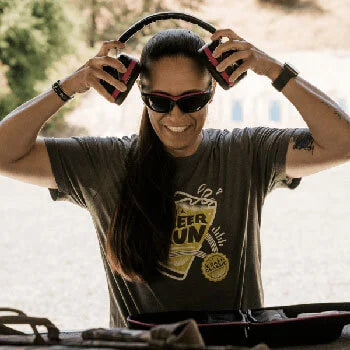
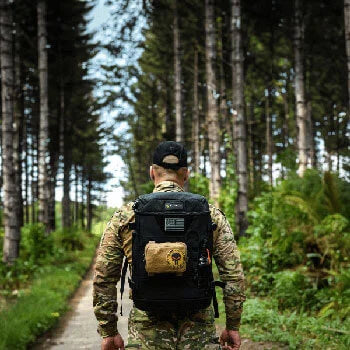
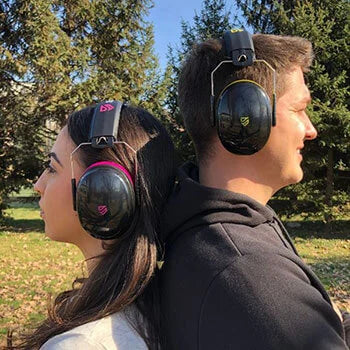
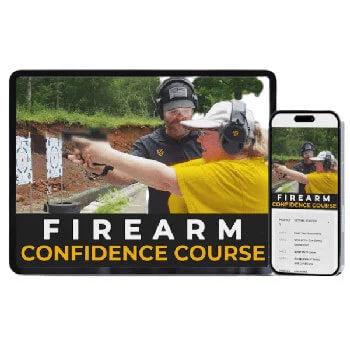
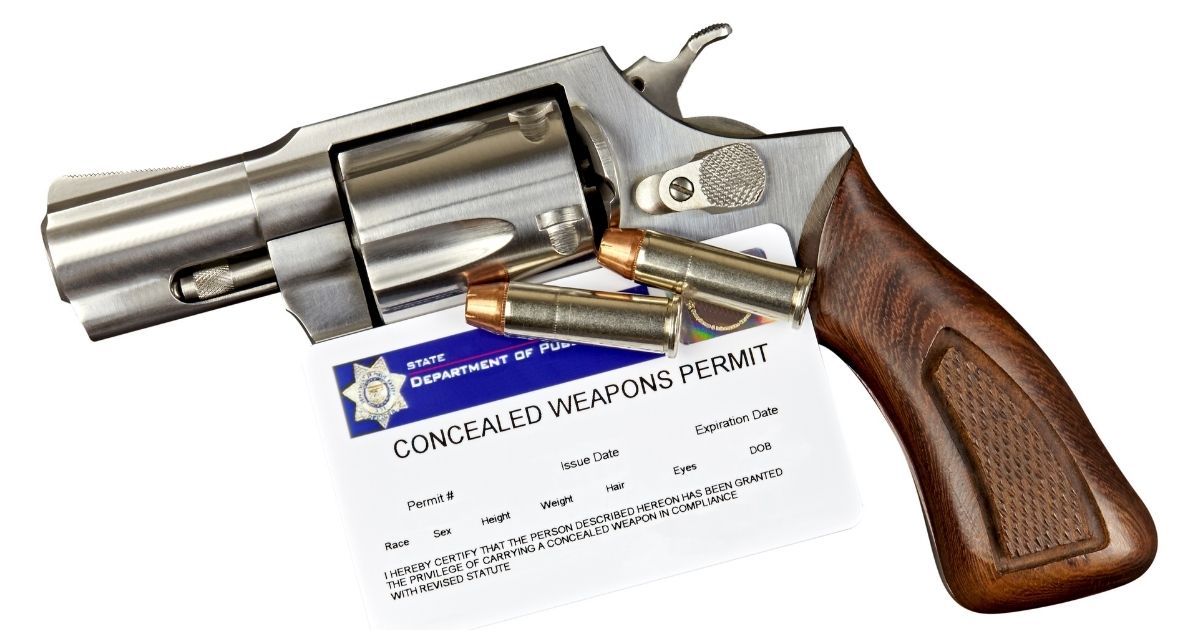
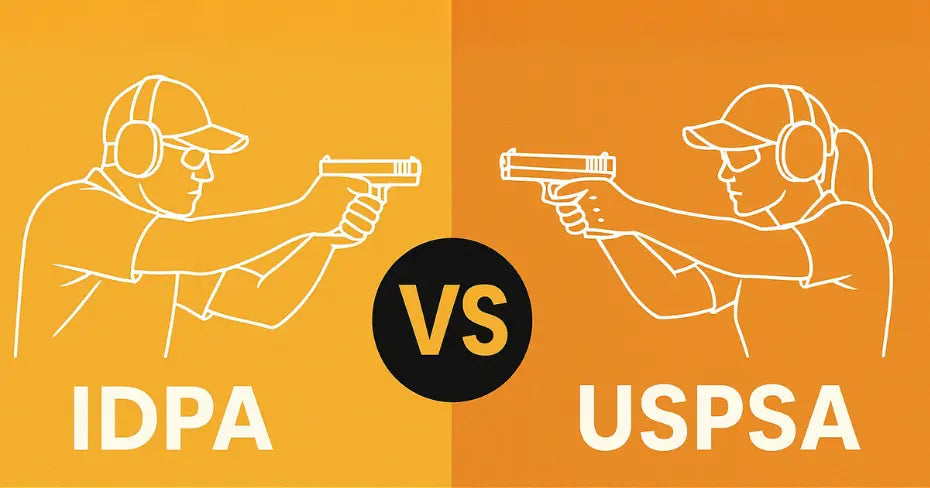
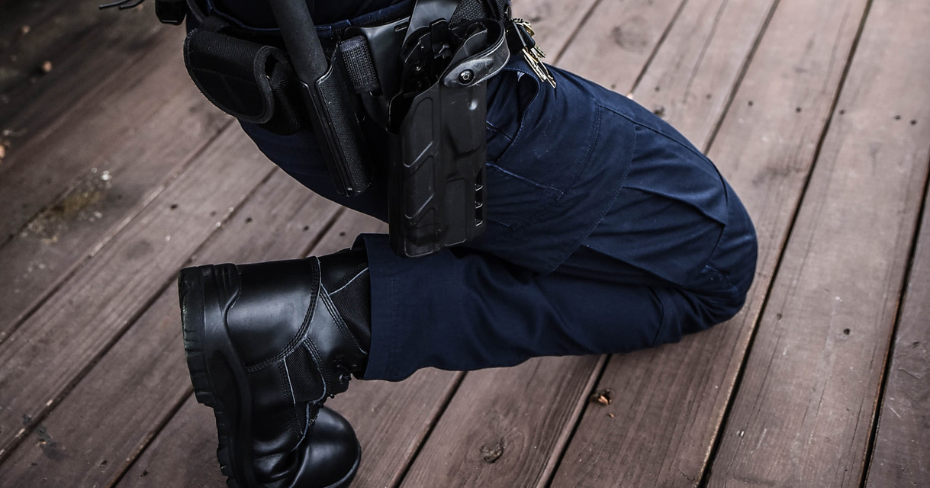
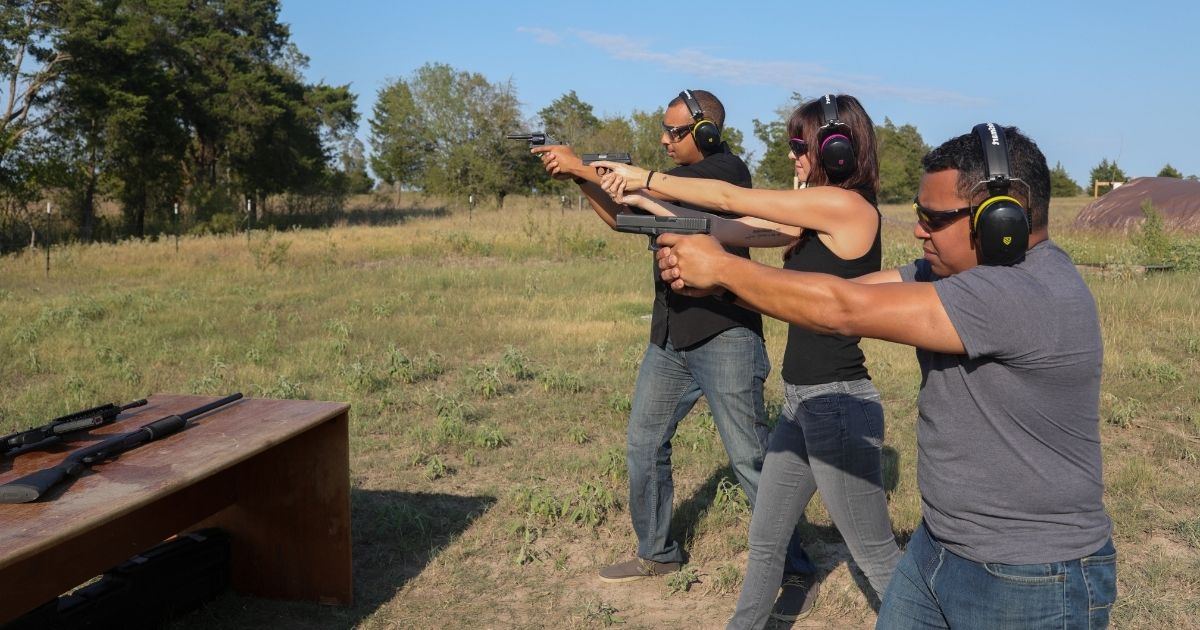
Leave a comment (all fields required)